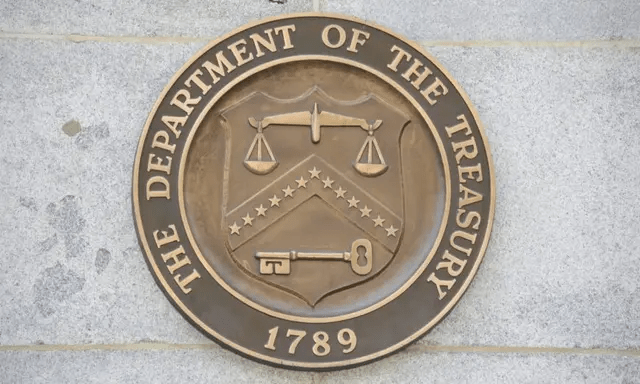The US Treasury Department has sanctioned eight foreign companies, a Chinese individual and a cargo ship for their involvement in the procurement and transshipment of “sensitive machinery” for Iran’s defense industry.
The Treasury Department said in a statement that the sanctioned businesses and individual supplied Iran with “sensitive machinery” and research “that underpin the regime’s ballistic missile, unmanned aerial vehicle, and asymmetric weapons programs.”
The Trump administration said that Chinese national Zhang Yanbang, the shipmaster of the Shun Kai Xing, “was aware” there was military machinery on the vessel headed to Iran.
The Shun Kai Xing is a cargo ship that was identified as “blocked property” by the US Treasury Department.
Today’s action is being taken in furtherance of National Security Presidential Memorandum-2, which directs that Iran be denied the development of missiles and other weapons capabilities and that the Islamic Revolutionary Guard Corps (IRGC) and its surrogates be disrupted, degraded, or denied access to the resources that sustain their destabilizing activities.
US Treasury Secretary, Scott Bessent said in a statement that the United States remains resolved to disrupt any effort by Iran to procure the sensitive, dual-use technology, components, and machinery that underpin the regime’s ballistic missile, unmanned aerial vehicle, and asymmetric weapons programs. “We have been clear: those who enable these schemes will be held accountable,” Bessent said.

He added that the department will continue to degrade Iran’s ability to produce and proliferate “these deadly weapons, which threaten regional stability and global security.”
The fresh sanctions came eight days after Israel launched airstrikes on multiple sites across Iran, including military and nuclear facilities, prompting Tehran to carry out retaliatory strikes.
The strikes were launched over alleged advances in Iranian weapons technology, but Iran and even Western intelligence agencies have denied the allegations.
As a result of the sanction, all property and interests in property of the designated or blocked persons described above that are in the United States or in the possession or control of US persons are blocked and must be reported to Office of Foreign Assets Control (OFAC).
In addition, any entities that are owned, directly or indirectly, individually or in the aggregate, 50 percent or more by one or more blocked persons are also blocked. Unless authorized by a general or specific license issued by OFAC, or exempt, OFAC’s regulations generally prohibit all transactions by U.S. persons or within (or transiting) the United States that involve any property or interests in property of blocked persons.
US Issues Largest Sanctions Against Houthis
Separately, the US said it has taken its single largest sanctions action to date against Yemen’s Houthi militias, a key Iranian ally, by imposing sanctions on four people, 12 entities, and two ships that Washington alleges import oil and other goods for the group.
Deputy Secretary of the Treasury, Michael Faulkender stated that the Houthis rely on a “series of front companies and trusted facilitators to clandestinely generate revenue, procure weapons components, and advance their reign of terror in partnership with the Iranian regime.”
He added that the sanction underscores the US’ commitment to disrupting the Houthis’ financial and shipping pipelines that “enable their reckless behavior in the Red Sea and the surrounding region.”
The Houthis have launched missile and drone attacks against commercial and military ships in the Red Sea corridor as an effort to end Israel’s offensive in Gaza.
They have also targeted Israel with long-range missiles.
READ ALSO: GOIL Posts 55% Profit Surge, Unveils Bold Agenda for 2025



















